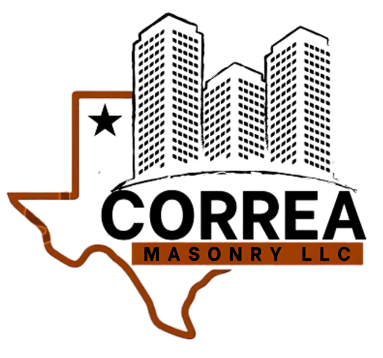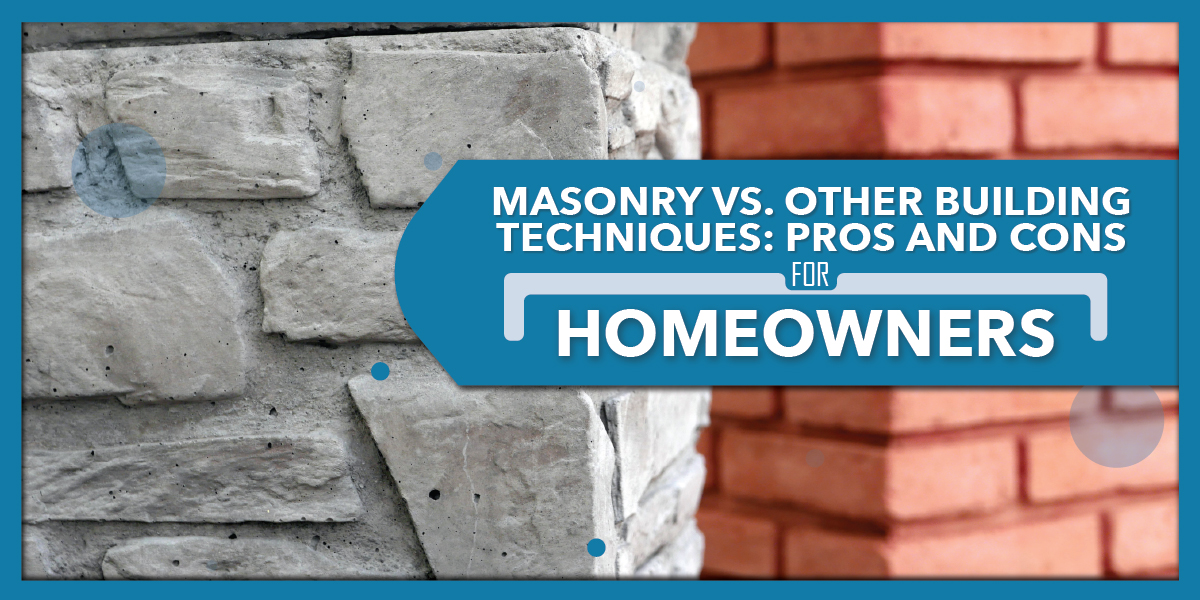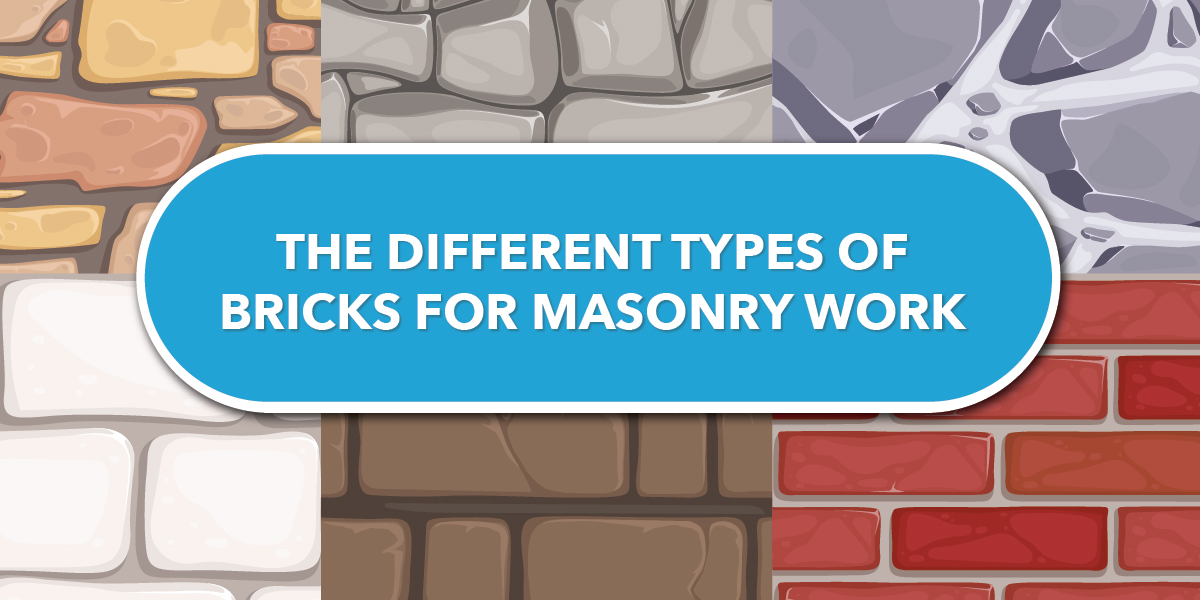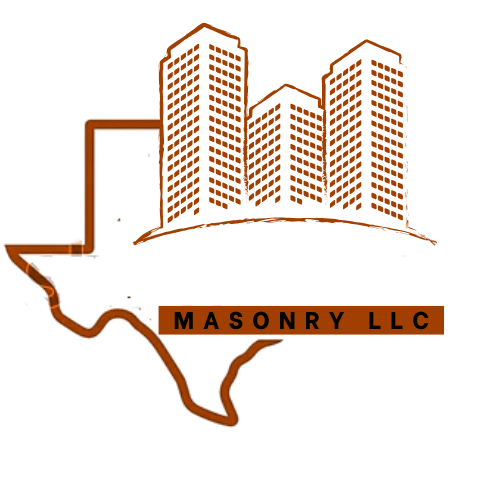In the current trending housing market, people want structures that are robust, easy on the eyes, and friendly to the environment. Masonry is one of the oldest building methods yet regarded as one of the most dependable.Residential masonry construction services produce houses for the homeowner with measurable attributes of quality, permanency, efficiency, and aesthetics. Now let’s discuss why people continue to turn to masonry construction even in the present times. Durability and Longevity It is agreed that buildings constructed using masonry display characteristics such as tightness, security, and strength. Bricks, stones, and concrete blocks are some of the materials that are traditionally fire-resistant, non-combustible, resistant to termite attack, and fire and storm-proof. This adds the advantage of durability and also adds value to the home as it is easy to sell old homes that were well constructed. Energy Efficiency The construction materials used in masonry are thick; they do well in preserving heat during the cold season while denying heat during the hot season. The effect of thermal mass delays the demand for artificial heating and cooling, thus saving a great deal on energy consumption. Aesthetic Versatility Masonry is one of the most versatile materials when it comes to design freedom. Regardless of whether the construction is country-like with natural stone, traditional with brick, or high-tech like concrete masonry can be adapted to any architectural style. The extensive use of masonry construction enables the integration of structured designs like arches, compulsory columns, and other classy surface finishes that enhance the outlook. Masonry also compliments the final look of homes internally and externally making it an evergreen construction. Low Maintenance Requirements Unlike other construction materials that keep needing repainting, resealing, or repair, most of the masonry surfaces are quite self-sufficient. They also do not chip, crack, or fade which means your home will always look great for many years. Usually, the only maintenance carried out for a masonry home entails washing frequently and occasionally brushing or scraping. Sustainability and Environmental Impact People are becoming more conscious of the environment and the impact of the structures they put up, and masonry construction is creditable. Formats like brick and stones are natural, and since they can be locally produced, the costs of transportation are relatively low. Also, masonry is easy to recycle, so it can be recommended for those who want to build a home sustainably. Enhanced Safety and Fire Resistance Masonry homes give an additional shield because of their inherent quality of heat resistance. While wood or some other flammable material will burn, masonry does not burn and offers an important safeguard in this respect. Further, the construction is more rigid and can withstand strong winds, and earthquakes among other disasters making masonry safe for homeowners. Investment Value Houses constructed by using masonry have higher resale value because; they are resistant to weather conditions, have a good appearance, and are energy-efficient. Home loan lenders understand the importance of constructing a masonry home since most buyers appreciate it as a good investment. Hiring a residential masonry construction service is advisable for one’s house structure since it adds value to the house and in most cases, the structure appreciates. In today’s house building, masonry can be regarded as an optimal option for people who look for durability, elegance, and environmentally friendly materials. Whether constructing a house from the ground up or remodeling a current home, residential masonry construction services provide unparalleled benefits that mix the old and the new. Homeowners must embrace masonry since it offers the best houses with excellent working amenities expected to last for several years.
How Concrete Masonry Walls Prevent Mold and Moisture?
A solid and long-lasting structure demands the correct materials, specifically their ability of professional concrete masonry services to prevent the flow of elements. In most cases, moisture has become a cause of problems such as molds, wood destruction, and damage to a structural element. In this case, what may protect mold and water infiltration particularly well is concrete masonry. Concrete masonry walls be it concrete block or poured concrete are well known for resisting water. Concrete’s Natural Resistance to Water Concrete masonry walls inherently resist water intrusion. Unlike wood, drywall, and other porous building materials, concrete does not absorb water easily. This is because it is a dense material with low porosity. As a result, concrete prevents the easy passage of water through it as happens in other materials. Generally, water leaves a concrete surface or drips down the surface rather than getting absorbed. For example, it also has an added meaning that helps in preventing mold, which needs a wet, moist place to grow. However, it should be pointed out that although concrete masonry is resistant to water, it is not waterproof. Penetration of water into the concrete can take place over time through cracks, joints, and an area not well sealed. Therefore, maximum sealing and proper construction techniques of concrete masonry must be assured, including vapor barriers and effective drainage systems. Mold Needs Moisture to Grow There are three basic requirements for mold growth namely, moisture, an organic food source, and the right temperature. Probably, the best way to prevent mold is through lack of moisture. In that area, concrete masonry stands out because concrete is highly resistant to water penetration; hence, it inhibits the collection of moisture required by molds to grow. In concrete masonry construction, water from where it could otherwise penetrate walls and lay down conditions to its preferred growth, mold is deflected or redirected away from the building itself. It has a propensity to heavily reduce the chances of experiencing mold issues in basements, crawl spaces, or bathrooms where water tends to congregate. Thermal Mass and Moisture Regulation Probably one of the least known advantages of concrete lies in its thermal mass, namely, the ability of the material to absorb and store heat. Concrete possesses a high thermal mass that, apart from regulating indoor temperatures, also helps regulate moist levels. In areas with fluctuating humid levels, excess moisture from the air gets absorbed by the concrete walls. As the air dries out, it can draw moisture stored in walls back into the environment, and indoor humidity is therefore balanced, dispelling the conditions that cause mold. Concrete Masonry Walls Are Fire-Resistant While the interest here is more with the prevention of mold and moisture, it is also worth noting that concrete masonry walls also are fire-resistant. This may occur indirectly in building fires where the suppression agent is water; however, this is secondary while providing some help in preventing the growth of mold. Concrete possesses fire-resistance properties that allow it to stand at higher temperatures without degrading or absorbing water, thereby maintaining its moisture-resistant properties after a fire. In addition, concrete does not release harmful toxins if exposed to extremely high temperatures; therefore, there is little chance that it would create an atmosphere that would thrive in the development of mold after a fire. The Finale: With proper construction techniques, sealants, and vapor barriers, concrete masonry walls can provide long-lasting protection against mold, moisture, and the health issues that they bring with them. Whichever it is, be it building or renovating a house, choosing concrete masonry will be quite a relief knowing that your building is going to be dry and healthy and free from mold for many years to come.
DIY vs. Hiring a Masonry Stone Contractor: What’s Better?
In the case of outdoor tasks such as constructing a patio, a pit for the fire, a candle, or a retaining wall, the question of whether to do the work oneself or employ an expert stone masonry contractor in Dallas appears. They both have advantages and disadvantages, which means that all of them need to be considered carefully. Cost: Is DIY Cheaper? Since you’re cutting out the labor cost, you pay only for the materials, and it can significantly cut down on the cost of the project. This does, however, come with some caveats. First is an investment in good tools and equipment, especially if you do not already have them. Hired or purchased special masonry tools such as mortar mixers, trowels, stone cutters, and safety equipment can become costly. Moreover, in case, you make mistakes in the work, you may have to repair it and even buy some more material. On the other hand, a masonry contractor will generally charge upfront because they will be billing their labor and materials. A professional will probably work faster, use fewer materials, and not make high-priced mistakes that might save you money down the road. You will also have peace of mind knowing the job was done right, so the risks of needing additional repairs or adjustments going forward will be reduced. Time and Efficiency: How Much Time Do You Have? Even if you are as handy as all get out, laying stones, mixing mortar, and ensuring the work is level and safe means many hours—especially on weekends or evenings when you can’t be there full-time. A DIY project can drag on for weeks or months, depending on the size and complexity of the job. Furthermore, the time you could put into it may go to those pockets of other things already competing for your time in life, such as family time, work, or doing other household things. A professional masonry contractor will get the job done much more efficiently. With experience and with proper tools, a contractor can complete projects in a fraction of the time it would take you. Whether or not it is building a retaining wall or installing a stone pathway, a contractor will know how to get the job done most efficiently, which may be invaluable if you’re looking to get the job done quickly. Skill and Expertise: Do You Have the Right Know-How? It is something more than the usual DIY skills; in other words, it is about precision, technical know-how, and experience in laying stone, brick, or concrete. This is the art of knowing the balance between materials and mortar as well as the environmental surroundings that surround you. Poorly installed stonework can cause structural problems, such as cracks, shifting, or even collapse. Professional masonry contractors have years of hands-on experience and industry knowledge. They understand the subtleties of materials, knowing when such stones expand and contract with temperature or application of mortar at correct proportions. The contractor will ensure not only that the job looks nice aesthetically but, more importantly, that it is structurally sound and long-lasting. Tools and Equipment: Do You Have the Right Gear? Masonry work demands specialized equipment, and most relevant tools are not usually found in any well-stocked homeowners’ garage. While heavy equipment such as mixers and scaffolding are needed, so too are smaller equipment such as trowels, chisels, and stone-cutting saws for the proper completion of a project. Even rental masonry tools at home improvement stores are available to the DIYers, though that too comes with its share of inconveniences. Besides being doubly sure you’re using the tool right, there’s the cost of renting or buying a tool – all additional hassles. Mistakes can happen or even accident. Final Thoughts: Any decision to do DIY masonry or seek a contractor depends on the complexity of your project, budget, and experience level. DIY probably saves you money and gives you a comprehensive sense of accomplishment, but hiring a Correa Masonry ensures completion within time, budget, and good work quality.
Masonry vs. Other Building Techniques: Pros and Cons for Homeowners
Construction has been a part of human civilization for as long as we can remember. There is evidence of construction from more than 10,000 years ago which just goes to show how vital it has been for the survival and evolution of the human race. If you’re looking to partner up with experienced masonry construction contractors in Dallas, TX – Correa Masonry is your #1 choice. With hundreds of completed projects in the area, we deal with all types of construction including residential and commercial. Here, we take a look at notable differences between several building techniques that are available on the market and how masonry can be the better choice for you. Differences Between Masonry and Other Building Techniques Pros of Masonry 1. Durability and Strength The biggest positives that are in favor of masonry are its durability and strength of construction. It has been one of the most important factors that have favored it over such a long period. Masonry can handle the heaviest load in the smallest form factor safely and without any issues. Masonry forms the core of large construction projects with other materials only used on the outside as a facade. It is resistant to pests and fire while also suffering minimal degradation over time. 2. Aesthetic Appeal With the right combination of masonry materials, any building can become a timeless masterpiece. There are a huge palette of design options available for people to mix and match. And the best part is that even a simple masonry project using bricks considerably enhances curb appeal. Another advantage of masonry is that it can be combined with other styles for a truly unique home or office building. Today, you can choose between a variety of textures available on the market and at a considerably lower cost than before. 3. Sound Insulation Since masonry is quite dense and heavy, it works really well to filter out external noise. It is especially relevant if you’re considering a project in a busy neighborhood. It enhances the privacy of your home and gives you peace of mind. Using masonry together with double paned glass can give you almost complete silence regardless of which location you’re in. 4. Property Value and Resale Since masonry is well known for its durability and hardiness, investing into it can give homeowners a huge benefit when it comes to property value. There are more buyers for masonry properties than other types and it is a great long-term investment. Masonry projects also have lower insurance premiums, which is another attractive benefit. During resale, you will find that people haggle less over the price of a masonry building than other types. 5. Maintenance Costs Masonry buildings have considerably lower maintenance costs compared to something like wood or prefab. Owners will find that only minimal upkeep is required, and the intervals between repairs are much longer comparatively. With masonry, you also don’t need a lot of plastering or sealing to ensure protection. Cons of Masonry 1. Initial Construction Costs One of the few problems with masonry construction is that it required a significant upfront investment to execute well. The materials used by masonry are expensive and it is a labor intensive process. But the good news is that since it is durable, you won’t have to spend a lot on maintenance, which can somewhat offset the cost of investment. 2. Turnaround Time Masonry projects can take a long time to complete. There are not many ways of speeding it up because the materials need ‘curing’ time. And since heavy machinery is required for most types of masonry projects, there are more chances for weather-related delays. With proper planning and a professional contractor, these delays can be reduced significantly. 3. Repair Complexity Masonry projects require considerable time and expertise to perform correctly. It is difficult to get the right materials to match the existing construction because they take on a different appearance when they age. Contractors also need specialized tools and it will take time to fully cure and settle. If you have a professional contractor like Correa Masonry, it will speed up the process significantly. Are you looking to start a new project in Dallas, TX? Get in touch with the best masonry contractor in the area, Correa Masonry LLC. Check out our website now for more information about our costs and other details!
The Different Types of Bricks for Masonry Work
Bricks are the basic building blocks of any type of construction or masonry work. With the advances in materials sciences, there are a lot more different types of bricks available today with various attributes and differences in aesthetics. Are you looking for certified masonry specialists in the Dallas, TX area? Look no further than Correa Masonry LLC! With decades of collective experience with stellar projects in the city, we have a great portfolio for you to browse through. We have delivered residential and commercial buildings over the years and are looking forward to working with you. Let’s take a look at the different types of bricks available that you can choose from. Types of Bricks 1. Burnt Clay Bricks When people say bricks, this is what they usually mean. One of the oldest and most used types of bricks today is the burnt clay bricks. Its characteristic dark orange color has been around for centuries. It provides a robust structure that is reasonably fire and weather resistant. But for improved aesthetics, you might need to plaster on it for a smooth finish. 2. Concrete Bricks Concrete bricks are usually made from a mixture of high strength cement as bonding agent, water, and sand. These types of bricks are known for their high strength and durability and often used in construction of walls or pathways. They are highly weather resistant and durable. It should be noted that they are heavier than clay bricks and require proper sealing to prevent moisture seepage. 3. Sand-Lime Bricks Sand-lime bricks or calcium silicate bricks are an alternative to concrete bricks. It is similar to concrete bricks but it uses lime instead of cement as a bonding agent. These types of bricks need to be cured in an autoclave and are strong enough to be used in load-bearing walls or high-rise buildings. It has good thermal insulation and has a uniform shape which makes it a good choice for commercial construction. 4. Fly Ash Bricks Fly ash bricks are made from the residue of burning coal and mixed with water and other additives for bonding. It requires a specialized curing process under high-pressure to ensure it can be used. It has several advantages for construction being light, strong, and environmentally friendly. Since the edges are prone to chipping off, it needs careful handling which makes it a slightly more expensive option. 5.Engineering Bricks Engineering bricks are the choice for more demanding projects. These bricks are designed to be the highest strength with as low water porosity as possible. While these are also made with clay, the process is different, and the result is focused on a more durable product without any need for aesthetics. They are much more expensive than regular burnt-clay bricks. Brick Properties You Should Know 1. Density and Weight Ideally, the best option for bricks is to have a balance between density and weight when you’re looking at domestic construction. For commercial purposes, since the buildings are going to be larger and have multiple floors, you need denser material to form a proper load bearing base. Your contractor will be able to help you with the choice of bricks for your needs. 2.Compressive Strength Compressive strength is how much axial load (vertical load) a brick can withstand before being crushed. Needless to say, this is important for all types of construction. The compressive strength depends on the type of material and curing process of a brick. While engineering bricks have one of the highest compressive strength numbers, you might not need them for a two-story home. 3. Durability and Weather Resistance Durability is a vital factor for all types of bricks. The ability of the brick to resist external factors like weathering and wear is referred to as its durability. High durability is generally better, and this can be further enhanced by the use of protective coatings. Also, the choice of bricks is determined by the type of weather in the area. 4. Water Absorption Water absorption or porosity is a measure of the water intake experienced in a brick and is usually expressed as a percentage of its weight. So, for a brick that weighs 100 gms and has 6% water absorption, it will take in 6 gms of water. Regardless of the type of brick you choose, ensure that it has low water absorption, especially if you live in a rainy or wet climate. 5. Cost The one factor that mostly dictates the choice of what brick you’re going to use comes down to the cost. It should be noted that burnt-clay bricks are more expensive than concrete bricks. The reason is due to the choice of raw materials and the curing process. While some types of bricks may be more expensive, they may be more durable saving you maintenance costs down the line. There are many factors to choose the right brick type for your construction needs. If you’re investing in a project, you have to look at the cost to performance ratio rather than the cost alone. For professional advice and insights for your construction in Dallas, TX, get in touch with Correa Masonry LLC. Get your free consultation by calling us now!



